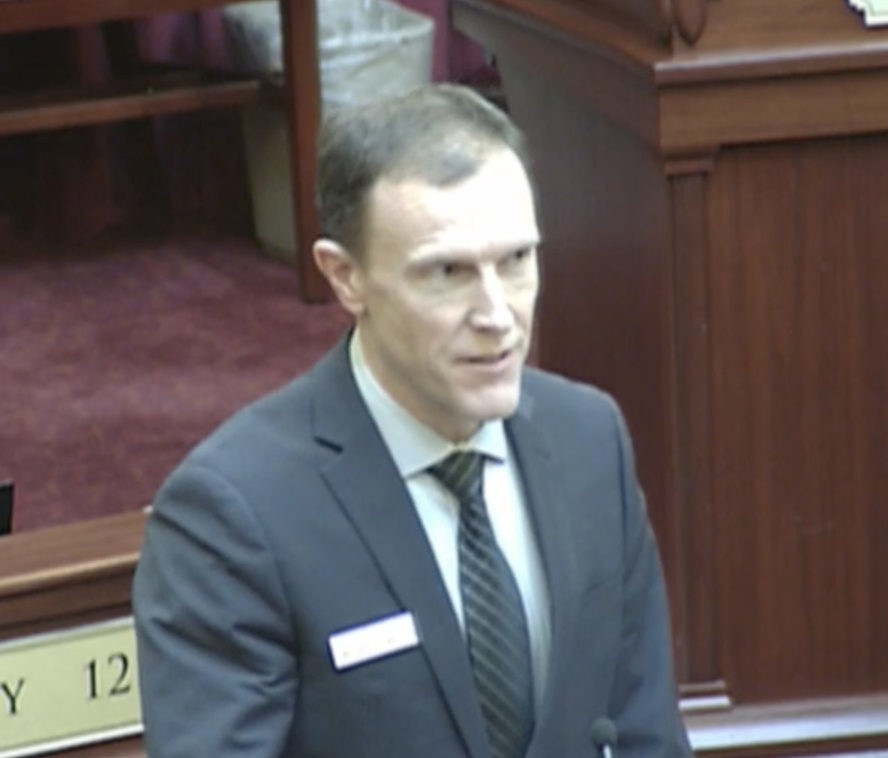Statehouse roundup, 2.3.22: School employee health insurance boost heads to governor – Idaho EdNews

The Idaho Senate has all but inked a bill moving toward providing K-12 school employees better health insurance at lower premiums.
The Senate Thursday easily passed House Bill 443 — which would create a fund to help districts and charters cover either the upfront costs of moving onto the state’s health insurance plan, or negotiate their own plans with private providers. The bill would cut a $20 million-a-year teacher “leadership premium” program, a tradeoff to free up funding for health insurance.
“It’s kind of bittersweet for me because I was involved in helping create the leadership premium legislation,” said former lawmaker Julie VanOrden, R-Pingree, who’s substituting for Sen. Steve Bair this session. “But the money put forward into this insurance bill is a forward-looking piece.”
Eight senators from both sides of the aisle offered glowing reviews of the bill before it passed 32-3.
Senators, including David Nelson, D-Moscow, argued more “fully” funding education in this way could indirectly take the burden of funding schools off the shoulders of local taxpayers, who are regularly asked to support supplemental levies across the state.
Lori Den Hartog called HB 443 a “historic opportunity” to lower teachers’ health insurance premiums for themselves and their families.
“And I think this will really have a significant impact particularly for our rural districts who have tried to do what they can to pool their resources to try to increase their negotiating power,” said Den Hartog, R-Meridian.
Only Republicans Regina Bayer of Meridian, Christy Zito of Hammett and Steve Vick of Dalton Gardens opposed the bill, and none debated against it.
A first step: HB 443 is one piece of a three-part proposal Gov. Brad Little made last month to beef up school staff health insurance. The bill already sailed through the House, so Little just has to sign it to make it law.
A separate spending bill would funnel $75 million in one-time money into the new funding pot created by HB 443. This spending bill is necessary for HB 443 to “have any significance,” said Sen. Jim Woodward, R-Sagle.
Another of Little’s proposals — putting $105 million annually toward school employee health insurance — would also have to clear the Legislature. This would bring the state’s current $8,400 per-employee spending on school staff insurance up to par with the $12,500 it shells out for other state employees.
A few administrators could receive master educator premiums
A new bill would allow a small group of K-12 teachers-turned-administrators to receive premiums awarded to veteran teachers.
Only teachers are eligible for the state’s master educator premium program. And under the current system, awardees must continue working as Idaho public school teachers for three years to receive the three annual $4,000 payments granted to them through the program.
That’s stopped “more than 23” teachers who were promoted to administrative posts after being awarded the premiums from receiving payments, House Education Committee Chairman Lance Clow said Thursday. Because administrators aren’t eligible for the premiums, some of these principals and vice principals only received one or two payments, despite expecting three.
Clow, R-Twin Falls, introduced a proposal Thursday to change that, and House Education voted unanimously to print it. The bill would send money already budgeted for these awardees’ premiums out to them. The change would be retroactive, so educators who were awarded premiums dating back to the summer of 2020 would be eligible for the extra payouts.
If the bill passes, it wouldn’t create an ongoing financial commitment for the state. The premium program sunsets in 2024, and the last class of awardees was announced last summer.
The bill can now receive a full hearing from the committee.
About Blake Jones
Reporter Blake Jones covers the politics and policy of Idaho’s K-12 public school system. He’s a lifelong Idahoan, and holds degrees in Creative Writing and Political Economy from the College of Idaho. Follow Blake on Twitter @jonesblakej. He can be reached by email at [email protected]
Read more stories by Blake Jones »
You may also be interested in







